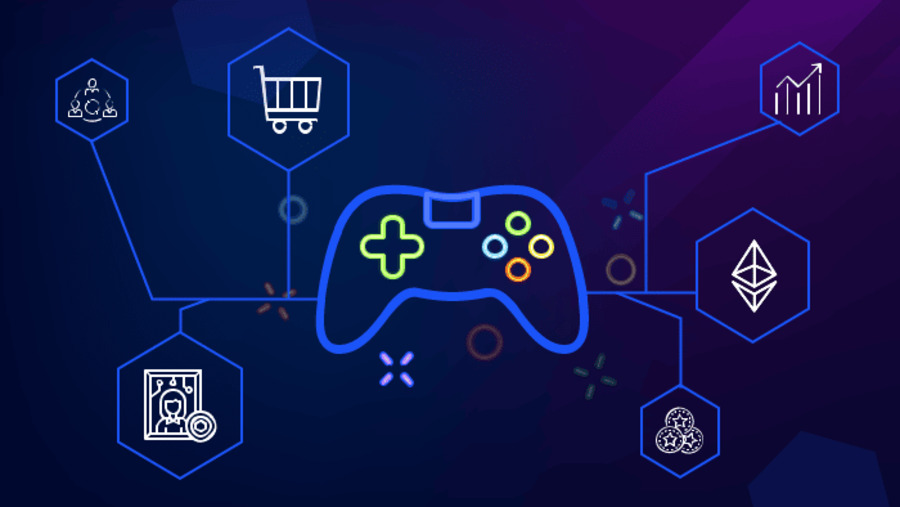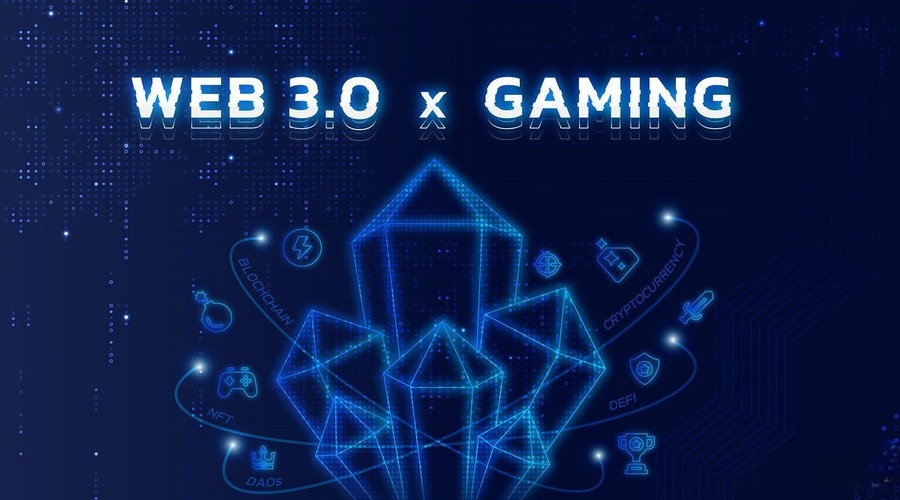As technology advances, the internet is becoming more and more integrated into our daily lives. The advent of Web 3 is set to revolutionize the way we interact with the internet, and the gaming industry is set to be one of the biggest beneficiaries of this transformation. In this article, we will explore the impact of Web 3.0 on gaming culture and community and how it is set to shape the future of gaming.
Introduction to Web 3.0
Before we dive into the impact of Web 3 on gaming culture, it is important to understand what exactly Web 3.0 is. Web 3.0, also known as the Semantic Web, is the next iteration of the Internet. It is characterized by a more intelligent, interconnected, and decentralized web that allows for greater personalization, privacy, and security. It is expected to be powered by blockchain technology, artificial intelligence, and the Internet of Things (IoT).
Web 3.0 and Gaming
The gaming industry has always been at the forefront of technological advancements, and Web 3.0 is no exception. The integration of blockchain technology into gaming has opened up a whole new world of possibilities, such as decentralized ownership, digital scarcity, and play-to-earn models.
- Decentralized Ownership: One of the key features of Web 3.0 is decentralization, and this is set to have a significant impact on gaming culture. Decentralized ownership allows players to own their in-game assets truly and have full control over them. This means that players can buy, sell, and trade their in-game assets without any intermediaries, such as game publishers or marketplaces. This creates a more open and democratic gaming economy, where players have a greater say in the value and direction of the game.
- Digital Scarcity: Another feature of blockchain technology is the concept of digital scarcity. This means that in-game items can be created with a limited supply, making them more valuable and desirable. This creates a new level of depth and immersion in games, where players can collect rare and unique items that have real-world value.
- Play-to-Earn Models: Web 3.0 also enables play-to-earn models, where players can earn cryptocurrency by playing games. This creates a more sustainable and rewarding gaming ecosystem where players can be compensated for their time and effort. It also allows for greater social mobility, where players from developing countries can earn a living wage by playing games.
Web 3.0 and Gaming Community

Web 3.0 is not only set to transform gaming culture but also the gaming community. The integration of blockchain technology into gaming creates a more collaborative and inclusive community where players can work together towards a common goal.
- Collaborative Development: Decentralized ownership also allows for more collaborative development. Game publishers can work with the community to create new content, and players can contribute meaningfully to the game. This creates a more engaged and invested community where players have a sense of ownership and pride in the game.
- Community Governance: Web 3.0 also enables community governance, where players have a greater say in the direction of the game. This creates a more democratic and transparent gaming ecosystem where players can have a real impact on the development of the game. It also creates a more accountable and responsible game publisher who is held to a higher standard by the community.
The Role of NFTs in Web 3.0 Gaming
One of the most exciting aspects of Web 3.0 gaming is the use of non-fungible tokens (NFTs). NFTs are unique digital assets that are stored on a blockchain, such as Ethereum. They can represent anything from digital art to in-game items, and their ownership and authenticity can be verified on the blockchain.
In Web 3.0 gaming, NFTs can be used to represent in-game assets, such as weapons, armor, and even virtual real estate. Players can buy, sell, and trade these assets on decentralized marketplaces, creating a more open and democratic gaming economy.
NFTs also allow for the creation of unique and rare in-game items that can have real-world value. For example, a rare sword in a Web 3.0 game could be worth thousands of dollars in the real world. This creates a new level of depth and immersion in games, where players can collect and trade unique and valuable items.
The Potential Impact of Web 3.0 on Esports
Web 3.0 is also set to have a significant impact on the esports industry. Esports is already a multi-billion dollar industry, and Web 3 can take it to the next level by creating a more sustainable and inclusive ecosystem.
One of the main issues in the esports industry is the lack of financial support for players. Many players struggle to make a living wage, despite the industry’s success. Web 3 can change this by enabling play-to-earn models and allowing players to earn cryptocurrency by playing games. This creates a more sustainable and rewarding esports ecosystem where players can be compensated for their time and effort.
Web 3.0 can also create a more democratic and transparent esports industry, where players have a greater say in the direction of the industry. Community governance can be used to create more equitable prize pools, better working conditions for players, and greater diversity and inclusion in the industry.
Challenges of Web 3.0 Gaming
While the potential benefits of Web 3.0 gaming are significant, there are also some challenges that need to be addressed. One of the main challenges is scalability. Web 3 games are still in their infancy, and the technology needs to be improved to support large-scale games with millions of players.
Another challenge is user adoption. Web 3 gaming is still a niche market, and many players may not be familiar with the technology or its benefits. Education and awareness campaigns are needed to promote the benefits of Web 3 gaming and encourage more players to adopt the technology.
Web 3.0 and the Metaverse
Web 3.0 is also set to play a major role in the development of the metaverse. The metaverse is a virtual universe where players can interact with each other in real-time, and it is set to become a major part of our digital lives in the future.
Web 3.0 can take the metaverse to the next level by creating a more immersive and interactive experience. Decentralized ownership and the use of NFTs can create a more realistic and valuable virtual world, where players can create, own, and trade their own virtual assets.
Play-to-earn models can also create a more sustainable and rewarding metaverse, where players can earn cryptocurrency by participating in the virtual economy. This creates a new level of depth and immersion in the metaverse, where players can truly live, work, and play in a virtual world.
The Future of Gaming
Web 3.0 is set to revolutionize the gaming industry, and the future of gaming looks very promising. The integration of blockchain technology into gaming creates a more open, democratic, and sustainable gaming ecosystem. It also creates a more engaged and invested community, where players can work together towards a common goal and have a greater sense of ownership and pride in the game. This is set to create a new era of gaming where players have more agency and control over their gaming experience.
Conclusion
Web 3.0 is set to revolutionize the gaming industry by creating a more open, democratic, and sustainable gaming ecosystem. Decentralized ownership, digital scarcity, and play-to-earn models are set to transform gaming culture, while collaborative development and community governance are set to create a more engaged and invested community. The integration of blockchain technology into VR and cross-platform gaming is set to enhance the gaming experience and create a more seamless and integrated gaming ecosystem. The future of gaming looks very promising with Web 3.0.
FAQs
- What is Web 3.0, and how does it relate to gaming?
- Web 3.0 is the next iteration of the internet, characterized by a more intelligent, interconnected, and decentralized web that allows for greater personalization, privacy, and security. It is expected to be powered by blockchain technology, artificial intelligence, and the Internet of Things (IoT). The integration of blockchain technology into gaming has opened up a whole new world of possibilities, such as decentralized ownership, digital scarcity, and play-to-earn models.
- How does decentralized ownership work in gaming?
- Decentralized ownership allows players to own their in-game assets truly and have full control over them. This means players can buy, sell, and trade their in-game assets without intermediaries, such as game publishers or marketplaces.
- What are play-to-earn models in gaming?
- Play-to-earn models enable players to earn cryptocurrency by playing games. This creates a more sustainable and rewarding gaming ecosystem where players can be compensated for their time and effort.
- How does Web 3.0 enhance cross-platform gaming?
- Web 3.0 enables cross-platform gaming, where players can play games across different devices and platforms. This creates a more seamless and integrated gaming experience, where players can play games on their preferred devices without any restrictions.
- What is the future of gaming with Web 3.0?
- The future of gaming with Web 3.0 looks very promising, with a more open, democratic, and sustainable gaming ecosystem. Decentralized ownership, digital scarcity, and play-to-earn models are set to transform gaming culture, while collaborative development and community governance are set to create a more engaged and invested community. The integration of blockchain technology into VR and cross-platform gaming is set to enhance the gaming experience and create a more seamless and integrated gaming ecosystem.



